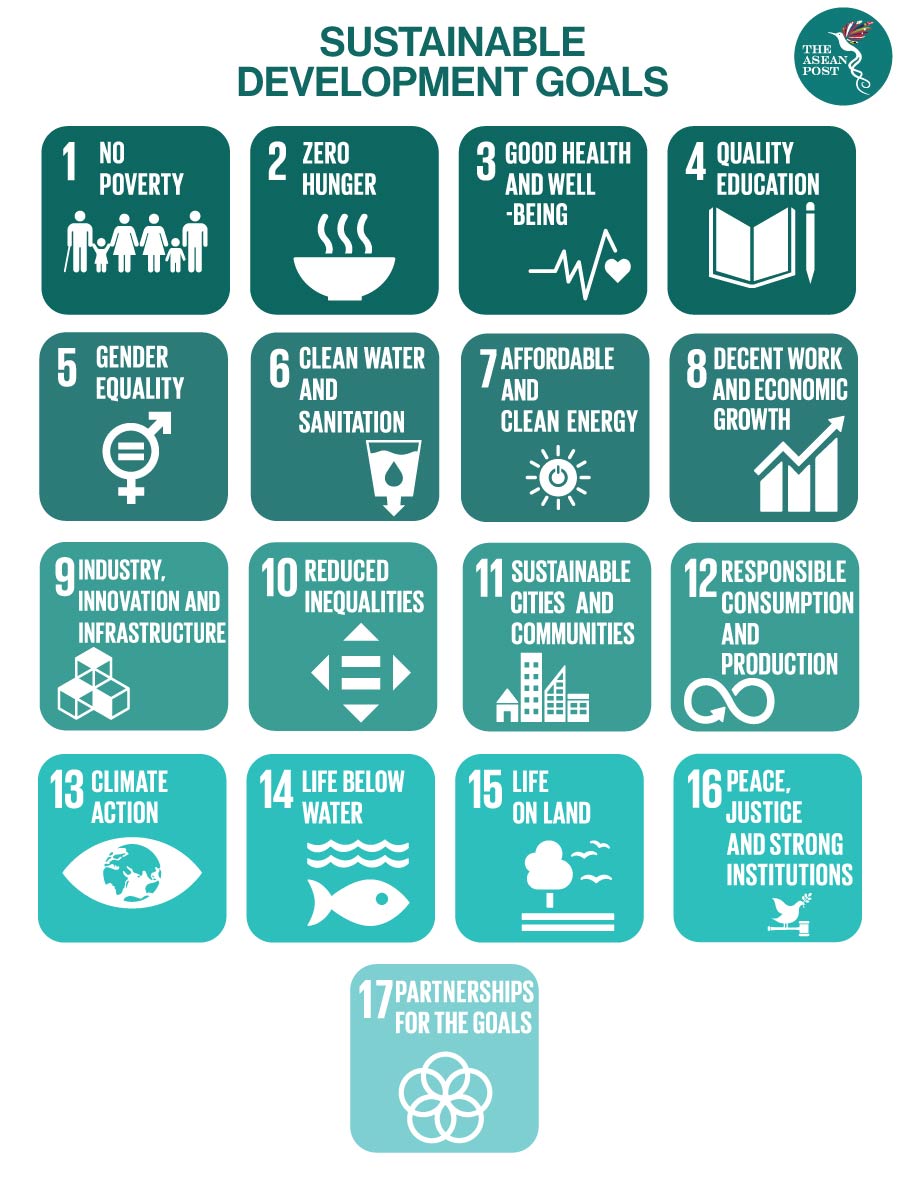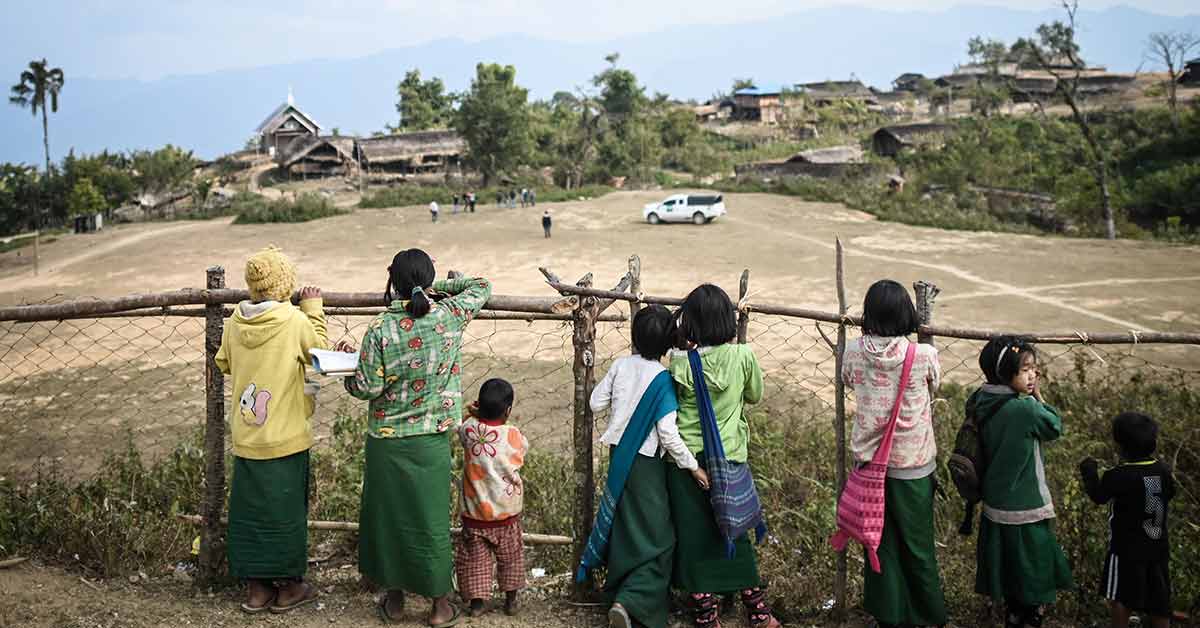The United Nations (UN) at its 75th anniversary is an opportunity for stocktaking on the state of sustainable development in ASEAN. In 2015, understanding that we were following a trajectory of environmental destruction, inequality, and poverty, the UN embarked on the global 2030 Agenda for Sustainable Development.
It is “a plan of action for people, planet and prosperity” that sets 17 goals intended to achieve a better and more sustainable future for all.
Now with 10 years left, achieving these Sustainable Development Goals (SDGs) will require ASEAN’s focus and undivided attention to avert falling short.
Reaching any of the – admittedly ambitious – SDGs has been a sobering experience. In Asia-Pacific, the UN has admitted that none of the 17 goals are tracked to be on target. In fact, some, such as Responsible Consumption and Production (Goal 12) and Climate Action (Goal 13), are regressing, which means that the situation is worse than in 2000.
So, do we give up on the SDGs or is there a silver lining? Can we boost our efforts and focus on priorities to get at least some of the goals over the finish line?

Achieving The Targets
When the SDGs were first introduced, the 193 signatory states, including all 10 ASEAN member states, were hopeful. The previous Millennium Development Goals (MDGs) fell short, but the new goals are different. How?
First, the holistic understanding of sustainable development. To achieve sustainability, it was stated, development must be environmentally sound and socially inclusive. “No one left behind” was, and is, the call sign; we need a healthy environment as well as a stable, peaceful, and equitable society. Only if our societies are stable, enjoy peace and everyone gets a fair chance, are we able to take care of our environment and use resources prudently.
Second, SDGs are for all. As opposed to the MDGs, achieving sustainable development is a shared endeavour between rich and poor countries; it is a common concern and developing countries need to be supported in pursuing the same goals as developed economies. The planet needs shared responsibility by all.
Third, a 15-year global policy agenda for sustainability. This has had a global impact of unseen magnitude. Although we may lament on how we won’t be able to reach the goals in 2030, we must duly acknowledge how far they have taken us. ASEAN has seen remarkable progress in terms of health and wellbeing, quality education for all, economic growth, and reducing poverty.
Although inequality is at a record high in many countries, it is not only researchers and activist groups who preach the sustainability gospel today. Sustainable development has reached the highest levels of government policy planning, it is part and parcel of business plans, city councils are turning their communities into sustainable cities, and even former villains, like the mining industry, are professing to become more sustainable.
There is no question that the sustainability agenda has impacted our minds, our planning systems, our economies, and our lifestyles. So, will the sobering news of our region falling short make us fall back to the habits of the bad old days? That is unlikely, as too many positive changes have been achieved and government support for the agenda has increased.
While Green Parties in national governments are still lacking in ASEAN, many political parties support some degree of the environmental and social equality agenda.
Aung Sang Suu Kyi’s National League for Democracy (NLD) in Myanmar is purportedly riding on a human rights and women’s equality agenda, albeit with increasingly nationalist overtones. Despite looming social and political issues, environmental governance is spreading in the country with large infrastructure projects undergoing environmental and social impact assessments.
In Thailand’s last election in 2019, all of the parties on the ballot had a pronounced social and environmental agenda, air pollution and inequality being top among them. In addition, Lao PDR has also included the SDGs in their National Socio-Economic Development Plan. Green growth and sustainable agriculture will play a major role in their next five-year planning period.
But are ASEAN member states doing enough?
The 75th UN General Assembly has hailed in a “Decade of Action” to accelerate SDG achievement and hit at least some of the set targets. While it sounds like a motivational campaign for the final stretch, it’s almost certainly too late for our region to accomplish any of the goals.
Most importantly, we have failed to introduce lasting transformation of our economies to produce and consume in ways that conserve resources and reduce carbon dioxide (CO2) emissions; to avoid inequalities in rights, wealth, and access to resources; to maintain biodiversity and avoid drastic species loss, and to stop filling oceans with plastic.
Despite us underachieving, sustainability – much like universal human rights or prosperity for all – is a value in itself. The fact that ASEAN and its member states anchor regional integration in SDGs must be seen as a major achievement.
It is remarkable that most nations on this planet agree to make an attempt to become more careful, more conscious, and more considerate of the resources that they are given to build their economies.
We need to keep pushing on the goals – all of them – as only together they make up for environmentally sound and socially equitable development. We will never fully get there, but we must continue to strive for them. It’s the pursuit that counts, even though the achievement continues to pose huge challenges.
Related Articles:


